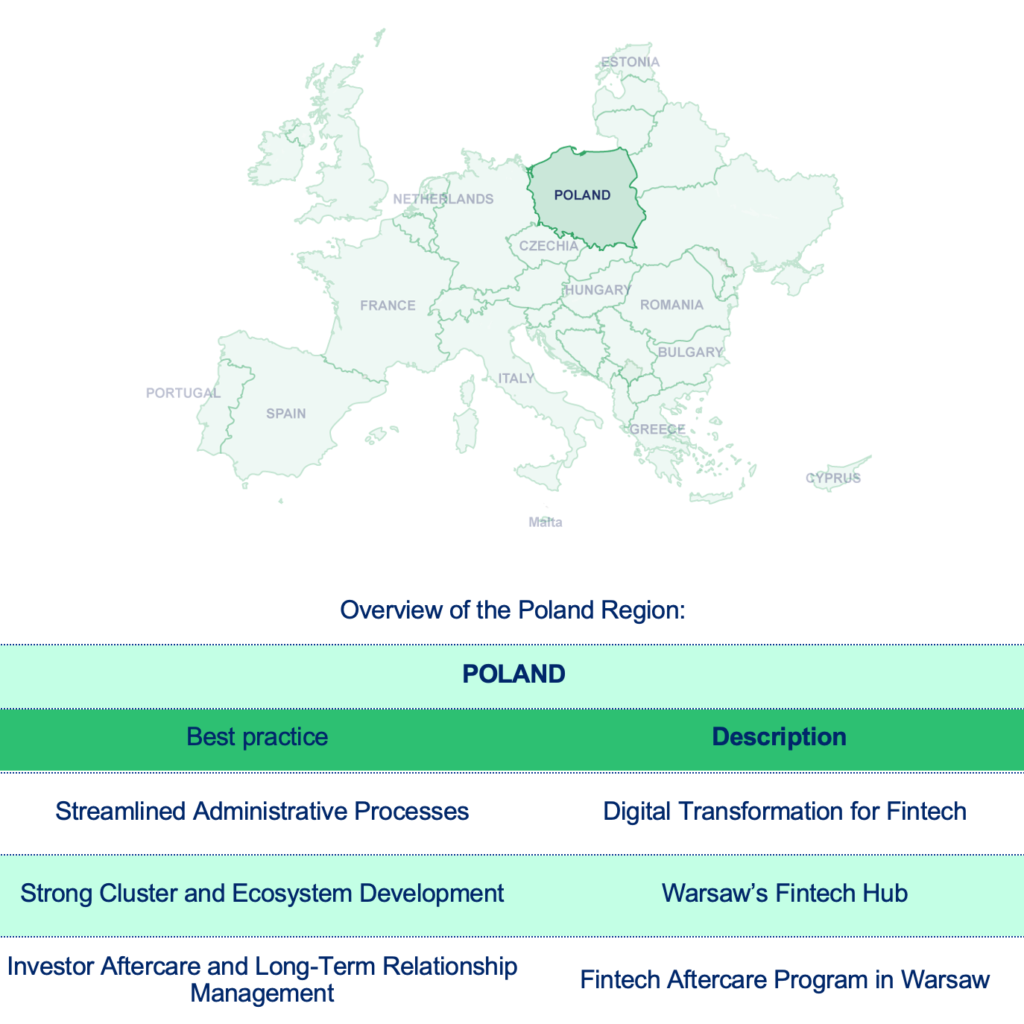
Poland has invested heavily in digitizing public services, including the business registration process, which now allows fintech companies to set up operations online quickly. Through the Business in Poland Portal, investors can access legal, tax, and licensing guidance. This streamlined approach has attracted global fintech firms like Revolut and Klarna to establish operations in Poland, contributing to the country’s growing reputation as a fintech-friendly destination.
Poland has also supported fintech startups from underrepresented groups through grants and training programs focused on women and minority entrepreneurs. Other CEE [1] countries could develop similar online platforms offering fintech-specific guidance to simplify incorporation and compliance processes.
Warsaw has emerged as a leading fintech hub, hosting global events like the FinTech & InsurTech Digital Congress and fostering partnerships between traditional financial institutions and startups. The city has attracted companies specializing in insurtech, digital banking, and payment platforms, such as PayU and Divante. Regions in CEE can develop fintech-focused events and partnerships to elevate their ecosystems and connect with foreign investors.
Warsaw offers dedicated aftercare services for fintech firms through the Polish Investment and Trade Agency (PAIH). Services include regulatory support, talent acquisition assistance, and networking opportunities with local financial institutions. This approach has helped foreign fintech firms scale their operations in Poland while integrating into the local ecosystem. PAIH organizes mentorship programs connecting underrepresented fintech entrepreneurs with established players in the industry.
